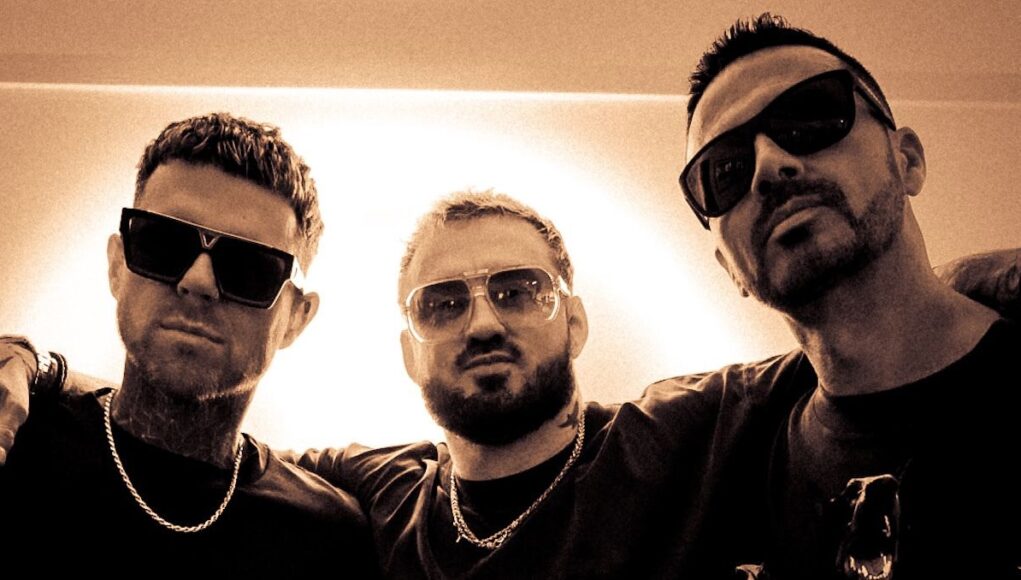The Creator sits at an intersection of memory and momentum. REZA and Rue Jay joined forces with Low Steppa to build something rooted in the early language of house, guided by the unmistakable voice of Chuck Roberts. His words shaped generations of dancers and DJs, and with his passing last year the project carries a different kind of weight.
Out now on the all-conquering Toolroom, the record doesn’t try to recreate the past, but it does tap into the feeling that first pulled all three producers into the music. Its rise has been steady and genuine, moving from clubs to festivals to the upper tier of DJ support without losing that grounding.
What follows is a conversation about how the collaboration came together, why Chuck’s vocal still hits with the same force, and what it means to bring that legacy forward.
The Creator has been resonating across festivals, clubs, and radio. Why do you think this track connects right now, in this moment of the scene?
REZA: It has a fresh vibe to it, and people love stand out records.
Rue Jay: I think most scenes and sounds move in cycles. That heavyweight, authentic house energy from twenty years ago feels very current again.
Chuck Roberts’ words are foundational for house culture. What do those messages mean to you personally?
REZA: When you think about iconic vocals in house music, there’s “Innnn the beginning there was Jack…” Is there anything more standout? Having that vocal officially featured on our track is mind blowing.
Rue Jay: I was mixing the acapella over tracks when I first started on the decks in 1991. The lyrical content shaped how I’ve thought about house music ever since. It’s so profound, probably the most significant acapella in the history of the genre.
Hearing the record in the hands of DJs like FISHER, Carl Cox, and Gorgon City must feel surreal. What was the moment when you realised this track had momentum?
REZA: I was confident Carl would listen to it, because he was championing “I Want Your Love” at the time. I took Reza’s advice on the track name knowing Carl would resonate with it, and it worked. When I saw Fisher had played it, I knew there were no boundaries to who might pick it up.
Rue Jay: It was when Carl Cox opened his set at UNVRS in Ibiza. We planned it by using the same part of the acapella that another 1992 track used, which I only remember Carl playing. I said, “If we call this ‘The Creator’ Carl will check it.” Can’t believe it worked.
How have your own local scenes shaped you both as artists and selectors?
REZA: I’ve been DJing for 27 years and learned my craft at The Steering Wheel in Birmingham, which was known for old school house. Big organs, synths, huge drops. That style never left me, and it’s in my productions.
Rue Jay: The first event I went to was The Eclipse in Coventry in 1991, with The Prodigy doing a live PA. The scene wasn’t split into genres then. DJs played what worked, and that approach still shapes how I make and select music.
What do you think defines a record that lasts beyond its release cycle?
REZA: It’s tough now with so many throwaway records coming out each week. But occasionally a track stands tall because of its distinctive sound. “I Want Your Love” has been charting for six months, and I think that’s because it sounds different to anything else in house.
Rue Jay: Something instantly recognisable after one listen.
How do you stay grounded when the pace of the scene is constantly pushing forward?
REZA: I don’t overthink it. I stay headstrong in all areas of life. Music is my passion project, and I love watching people dance to it. I still get goosebumps when a label signs a track or a DJ drops it. It’s about the beats, not the ego.
Rue Jay: By staying true to your roots but not being afraid to evolve. Believing in yourself and in the people you work with.
Are there artists or labels outside of house that you draw energy or inspiration from?
REZA: Michael Jackson was a big inspiration when I was young. Hearing “Billie Jean” at eight years old made me realise I wanted to work in music.
Rue Jay: I take influence from 70s and 80s disco. A lot of inspiration comes from early rave music, which is still house at its core.
How do you approach balancing functional club energy with something that carries emotional or cultural resonance?
REZA: The sweet and sour effect of combining club energy with emotive sounds comes from merging different vibes. If both sides stand out, you’ve got a standout track.
Rue Jay: The same idea. Merge different vibes, and if both elements have weight, you often end up with something that cuts through.
What have you learned from this collaboration that you’ll carry into future projects?
REZA: I’ve learned to enjoy the ride. Every project brings hurdles, especially when you’re working with such an iconic vocal, but that’s part of the game. We trusted the Toolroom crew to steer it, and they smashed it. The whole experience reminded me why I do this, especially working with two lifelong friends.
Rue Jay: It’s given me some of my best memories in more than thirty years in the scene. Seeing the track played across festivals and clubs has been great validation. Doing this with two old friends made it even more memorable.
If someone hears The Creator for the first time, what do you hope they take from it?
REZA: Nostalgia and good vibes.
Rue Jay: Energy and inspiration.
The Creator is out now on Toolroom








